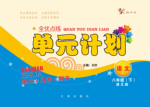题目内容
______ the time she got out, the bus ______.
- A.On, has gone
- B.by, has gone
- C.On, had gone
- D.by, had gone
by“到……时间为止”;过去完成时结构。

 全优点练单元计划系列答案
全优点练单元计划系列答案
Passage 3
Are you looking for something fun and would you like to help others in your spare time? Then join us to be a volunteer! We’re a non-profit (赢利的) organization. We have volunteer jobs of all ages. Anyone, from twelve-year-old children to people in their seventies can become a volunteer.
You can help people in many ways. Schools need help with taking care of children while parents are working. Hospitals need volunteers to look after children while their parents are seeing a doctor. Animal lovers can help take care of those dogs and cats without homes. There is something for everyone.
“As a volunteer, I don’t want to get anything. Seeing the children’s happy faces, I’m happy, too.” Said Carlos Domingo, an old woman of 62. “I often played computer games in my spare time before. Now I help older people learn how to use computers.” said another volunteer at the age of 18.
If everyone helps out a bit, we’ll have a better world to live in. Interested? Call us 1-800-555-5756 or visit our website: www.activol.com.
【小题1】When do the volunteers help others?
| A.In their spare time. | B.At weekends |
| C.On weekdays. | D.In the evenings. |
| A.Children | B.Old women | C.Anyone aged 12-70 | D.Young people |
| A.money | B.computers | C.everything | D.nothing |
| A.animals | B.children | C.computers | D.older people |
| A.in a newspaper | B.in a storybook | C.in a picture book | D.in a textbook |
As you are soon on your way to Eastern Europe, here are a few tips on what you should pack. In general, pack lightly, with only the most basic clothes. People dress casually(随便地) in Eastern Europe, so you don’t need to bring along your smartest clothing.
Batteries: If your camera, flash, or other appliances run on batteries, bring enough supply along. Certain types of batteries don’t exist in Eastern Europe, and those that do often don’t last very long.
Cash: We have found it good to have supply of small-unit U.S. bills($1and $5) to use in hard–currency stores, to buy international train tickets, etc. The hard–currency stores never seem to have the right change.
Electric Current Adapter(转换器): If you bring any appliances, remember that the electricity in Eastern Europe uses 220 volts A.C., not the standard 110 volts of North America. A 110 volts appliance will soon burn out when attached to an unchanged 220-volt plug.
Language Tools: One of Europe’s biggest challenges is communicating with the local people since their languages are so different from our own. To help overcome difficulties, you might buy phrasebooks before you go — you won’t find them once you are in Eastern Europe.
Money Belt: A money belt is especially helpful when you have many documents to carry around ( as you always do in Eastern Europe). The best one we find is made by Eagle Greek Travel Gear, 143 Cedros Ave. (P. O. box 651), Solona Beach, CA 92075 (tel. 619/755 – 9399, or toll free 800/874 – 9925) outside California.
Traveler’s Checks: These are necessary. Bring your traveler’s checks in small to medium unit ($10, $20, or $50) to change a little bit at a time, so as not to be left with a lot of local money. To be on the safe side, be sure to copy down the check numbers in two places, just in case something happens to the checks.
【小题1】How many tips are mentioned in the passage?
| A.6 | B.7 | C.8 | D.9 |
| A.Appliances. | B.Money. | C.Language. | D.Clothes. |
A. No shop in Eastern Europe accepts hard currency.
B. Travelers may need to carry many documents in Eastern Europe.
C. The electricity in Eastern Europe uses 220 volts A.C.
D. Eastern European languages can be a problem to foreign travelers.
【小题4】What’s the writer’s purpose of writing this passage?
| A.To tell you it’s not easy to stay in Eastern Europe. |
| B.To give you some advice on what you should pack when you’re in Eastern Europe. |
| C.To tell you something about the life in Eastern Europe. |
| D.To show you the life in Eastern Europe is different from that in your country. |
change
1. [V] to become different 改变;变化
2. [V] to exchange money into the money of another country 兑换
3. [U] the money that you get back when you have paid for sth giving more money than the amount it costs 找给的零钱;找头
check
1. [V] to examine sth to see if it is correct, safe or acceptable 检查;审查
2. [C] an act of making sure that sth is safe, correct or in good condition by examining it 检查;查看
3. [C] a printed form that you can write on and sign as a way of paying for sth instead of using money 支票
| A.1; 3 | B.3; 3 | C.2; 3 | D.2; 2 |